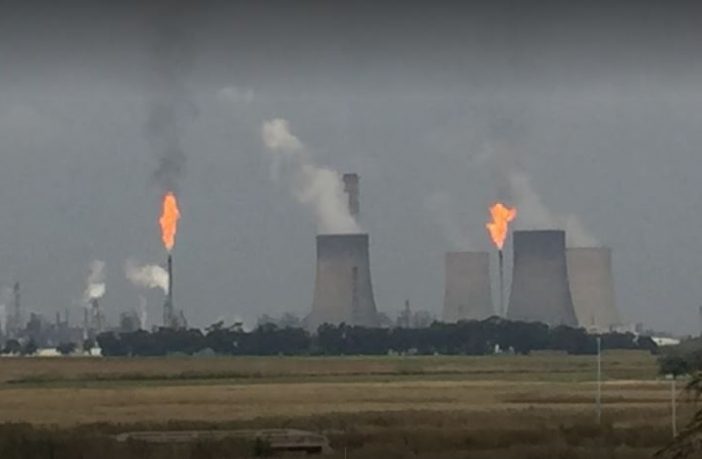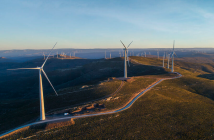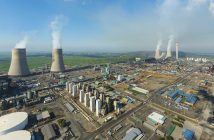- In an unprecedented move, a group of six leading South African institutional investors recently joined forces as co-filers of a climate risk shareholder resolution.
- The resolution sought to compel JSE listed fossil fuel producer Sasol to report on how its greenhouse gas (GHG) emission reduction strategy aligns with the goals of the Paris Climate Agreement.
- The group was supported by shareholder activist organisation Just Share in the early stages of this process.
The co-filers (Old Mutual Investment Group, Sanlam Investment Managers, ABAX, Coronation, AEON Investment Management, and Mergence Investment Managers) submitted their resolution to Sasol’s board for voting on at the company’s AGM on 27 November 2019, as they consider these matters a material risk to Sasol – the second largest emitter of greenhouse gases (GHG) in South Africa after Eskom. Regrettably, the tabling of their resolution was rejected by the Sasol board.
This is the second time that Sasol’s board has refused to table a climate risk resolution. The first was proposed in 2018 by the RAITH Foundation and shareholder activist Theo Botha, also with support from Just Share. At the time, Sasol’s refusal was based on a legal opinion it had commissioned but refused to share. It also claimed that it would be addressing all the matters raised in the 2018 resolution in its 2019 Climate Change Report. The 2019 resolution was similarly rejected on the basis that the matters raised in it “have been addressed” in the 2019 Climate Change Report. However, a review of the Report quickly reveals that this is not the case:
- The 2018 resolution was a so-called “2 degree scenario” resolution, modelled on similar resolutions tabled at fossil fuel companies around the world. It asked Sasol to assess the effects on the company of a scenario in which global average temperature rises are kept to below 2°C (as in the Paris Agreement); and to detail how it is building resilience for a ‘two-degree world’.
- The 2019 resolution similarly requested detailed reporting on how Sasol’s GHG emission reduction strategy aligns with the Paris goals.
- Although Sasol’s Climate Change Report maps two future scenarios, neither is in line with the Paris goals.
- Sasol’s Report also does not make clear whether the types of disclosures that will be made in its November 2020 roadmap will be aligned to the Paris goals, or how they will be linked to short- and long-term executive remuneration – information specifically called for in the investor group’s 2019 resolution.
Sasol’s continued resistance to shareholder attempts to hold it accountable via the tabling of shareholder resolutions is regrettable, especially from a board looking to restore trust. The institutional shareholders have, therefore, indicated that they are planning further engagements with Sasol’s board on the company’s emission reduction strategy in the coming months.
Tracey Davies, director of Just Share, says: “Just Share commends the co-filers for taking this unprecedented step to collaborate, and for doing so transparently. Their public acknowledgment of their efforts, and of their plans for continued engagement to drive change, represent a refreshing change from the traditional approach of only engaging “behind closed doors”. This collaboration also marks the arrival of a new era of active ownership and responsible investment, and it is very encouraging to see the SA investor community demonstrate this kind of leadership
Author: Bryan Groenendaal











